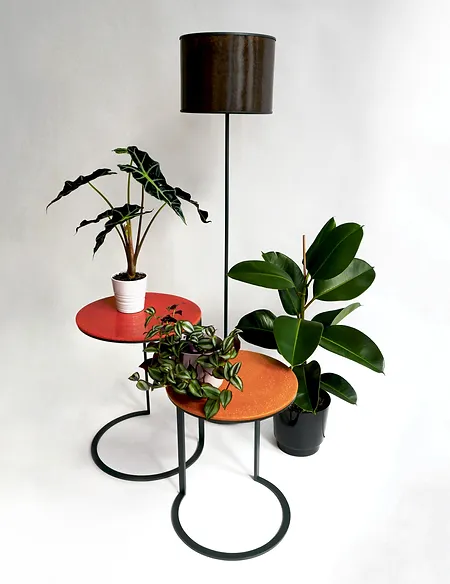
Fibe is a sustainable alternative to traditional textiles such as cotton and polyester. By collecting and processing potato harvest waste, they can create a textile that is affordable, scalable and can retrofit with existing manufacturing processes.
They use zero-waste biological and mechanical processes to convert potato harvest waste into eco-textiles. . To produce textile fibres, they use a biological process to break fibres away from the woody material in potato stems. Unlike other fibre extraction processes,thier only byproduct is a nutrient-rich fertiliser. The fibres can be fully removed using mechanical separation, which can then be retrofitted with standard machinery in textile mills to produce Fibe woven fabrics.
2. Fly Farm

FlyFarm specialises in upcycling organic waste by harnessing the power of insects – the natural converters of organic waste in nature. They are able to process a wide variety of food waste and by-products coming from agriculture and food processing.
By using waste from breweries, soya waste and vegetable waste as food for larvae stocks. They upcycle the useful proteins in organic waste streams into insect protein for animal feed and do so with negative emissions.
3.Bio Bean

Bio-Bean is a UK-based biotech start-up that has industrialised the process of recycling used coffee grounds into advanced biofuels. The company was formed in 2013 by Arthur Kay, who began researching whether coffee could be used to create biomass pellets after he noticed a film of oil forming on top of a cold cup of coffee.
Bio-Bean works with existing supply chains to collect and aggregate tonnes of coffee ground wastes generated by coffee factories, cafés, transport hubs and offices. This waste is then recycled into biomass pellets, which can be used to heat buildings.

Ottan Studio has made a name for itself by converting food and garden waste into bio-composite material from which it makes furniture, decorative items, and wall panelling. Interior design items are commonly produced with wood and other raw materials, but the founder of this Turkey-based startup, Ayse Yilmaz, saw the marvellous potential of biological waste as raw material and came up with an innovative process to upcycle tons of discarded fruit peels, nutshells, and leaves and manufacture them into high-quality products.

Founded in late 2019 by Australian duo Veronica Fil and award-winning chef Shaun Quade, the company has rapidly gained the attention of larger grocery retailers due to its unique ingredients and novel fermentation process, which harnesses the functional proteins and fats contained in hemp and enables Grounded Foods to achieve textures that closely replicate that of dairy cheese.
Unlike nut- or coconut oil-based alternatives, Grounded® cheeses are primarily made from hemp seed and imperfect cauliflower and are designed to recreate the sensory experience of eating traditional dairy cheese — appealing to the growing number of flexitarian consumers who want healthier, more sustainable plant-based options without compromising on taste.